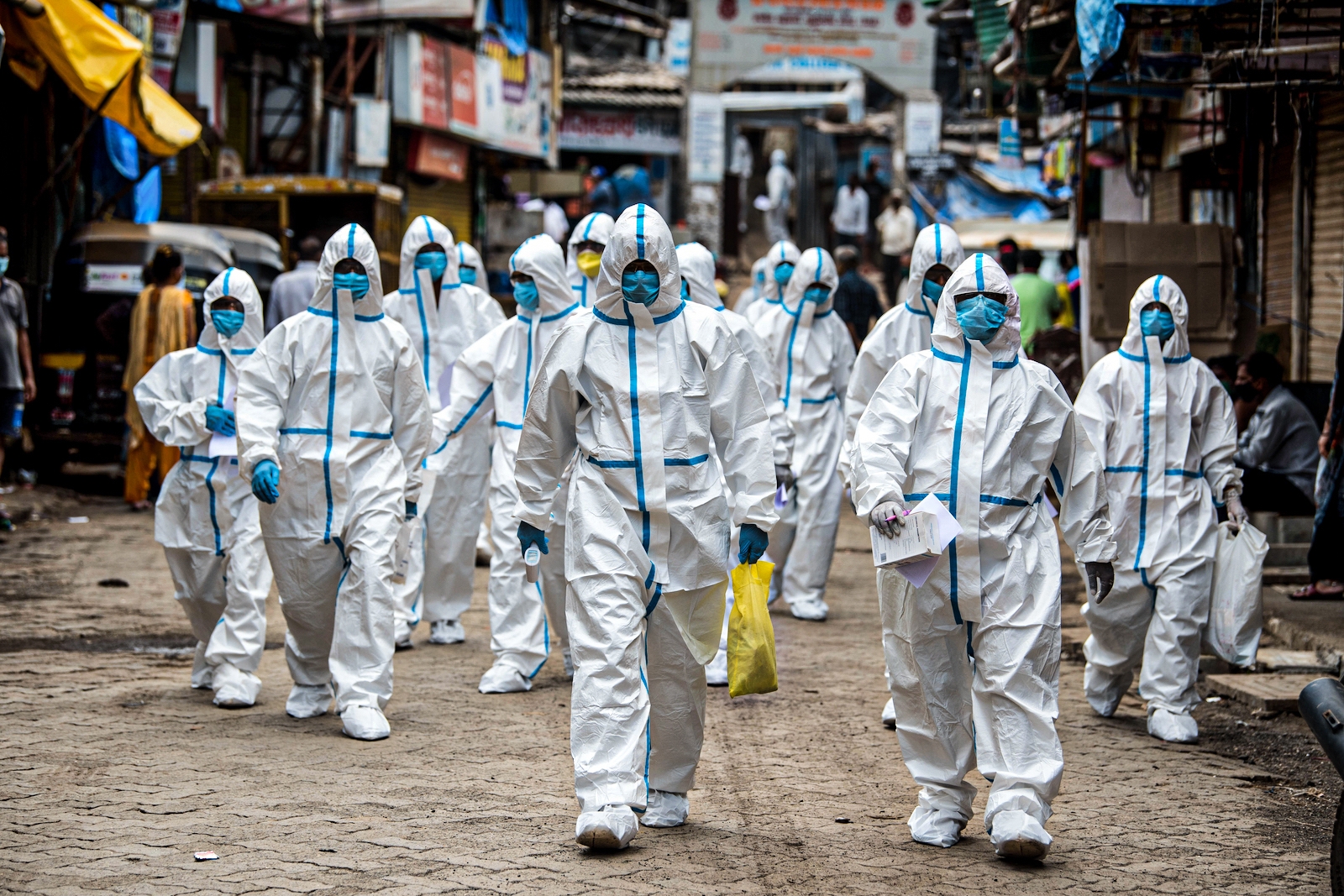
Business
COVID Was a Pretext for Widespread PPE Scams
The sudden nature of the pandemic in early 2020 meant that many countries were underprepared to deal with the surge in demand for personal protective equipment (PPE) for healthcare workers. This, naturally, meant that PPE prices began to skyrocket, and cynical actors began to find ways to try and profit from the crisis.
From organized crime gangs selling fictitious PPE online, to corrupt Tory peers syphoning off millions in government COVID contracts without calls for tender currently under investigation by the UK government, and even companies failing to honour orders and refusing to reimburse millions of euros in undelivered PPE, the problem became global.
Fictitious PPE
One of the most common scams involving PPE at the height of the pandemic was the selling of non-existent PPE online to medical companies and government entities. As governments struggled to contain rising inflation and the prices of PPE soared with increasing demand, scammers jumped at the opportunity to make a quick buck by selling non-existing “phantom PPE” online.
One scam was uncovered by authorities in the Netherlands, Romania, and Ireland. It involved an organized crime group composed mainly of African nationals operating in 34 different locations across Europe. The scam involved the use of compromised emails, advance-payment fraud, and fake websites designed to appear similar to sites belonging to legitimate companies in order to sell PPE materials such as face masks to unknowing victims.
Back in August of last year, 23 suspects were detained in an operation run by Europol. It is believed the group defrauded around 20 companies across Europe of at least €1 million.
Fake firms were also quick to de-fraud taxpayers via government loans designed to stabilize companies at risk from pandemic insolvency. This was the case of two UK companies found to have received at least £180,000 from local councils and government loans before being caught. The two firms, CK Sales and Lambden Smart Solutions falsely claimed to be providing PPE equipment at the start of the pandemic, but it was later found out that neither company had ever traded and had fabricated documentation and used fake addresses in order to defraud local authorities.
It is believed that these firms were part of a wider network of fraudulent companies aiming to profit from the financial instability of the pandemic. “These companies have been systematically defrauding taxpayers through their abuse of financial support schemes put in place to help genuine businesses during the pandemic,” said Dave Hope, chief investigator from the Insolvency Service, a UK government agency.
“VIP lane” to PPE contracts
In a phenomenon that seems to have been particularly present in the United Kingdom, many firms appear to have benefitted from a so-called “VIP lane” to PPE contracts, by-passing calls for tender. These firms were awarded contracts worth billions in a practice that was subsequently found to be unlawful by a UK High Court. Judge Finola O’Farrell stated, “There is evidence that opportunities were treated as [a] high priority even where there were no objectively justifiable grounds for expediting the offer. The claimants have established that operation of the high priority lane was in breach of the obligation of equal treatment under the PCR (public contract regulations)…the illegality is marked by this judgment.”
The most high-profile case focused on the firm PPE MedPro, a company linked to Conservative peer Michelle Mone. The company was awarded £200 million in contracts to provide surgical masks and gowns without any public tender, despite having been created only weeks before. The UK government has since launched an investigation, raiding Mone’s home and the company offices on the Isle of Man. “The Conservative government’s failure to come clean about the millions of pounds of taxpayer’s money awarded to Tory-linked MedPro reeks of a cover-up,” stated Angela Rayner, Deputy Leader of the Labour Party.
Another Tory Party donor who apparently benefitted from this VIP lane was Meller Design Solutions, which was awarded six PPE supply contracts worth £164 million from the Department of Health and Social Care during the pandemic. Accusations of cronyism, “chumocracy” and a general lack of transparency have since plagued the Boris Johnson government.
PPE paid for but never received
There are also numerous documented cases of million-dollar PPE orders being paid for, but the PPE itself is never received. An investigative audit in Oklahoma, for example, found that the Oklahoma Department of Health invested more than $5.4 million in PPE and other medical supplies that it never received. “The state did not have a comprehensive emergency procurement policy or procedure in place prior to the COVID-19 emergency, greatly increasing the state’s risk for fraud, waste, and loss of funds,” the audit states. “As a result, prepayments were made in violation of the Oklahoma Constitution, and goods have still not been received for over $5.4 million paid by the state.”
Another example involves the French company DoviLab, which is said to have placed an order on behalf of France for several million dollars worth of PPE with the Canadian company PODS Health. PODS Health then subcontracted this request while demanding advance payments from the various suppliers involved. In the end, not only did PODS Health fail to deliver the agreed supplies, but it refused to repay the installment on the grounds that some suppliers were unwilling to refund the money. The company is now blaming subcontractors for the entire fault, refusing to reimburse its French customer, who could take the matter to court. PODS Health and its director, Deepak Poddar, have been cited in another similar case in the United States. When contacted, the French company did not return my email.
Scams involving the non-delivery of PPE have been widespread. In the United States, the Federal Trade Commission sued online marketers, including SuperGoodDeals, Glowyy, and American Screening for instance, for falsely promising the quick delivery of N95 masks, failing to deliver orders, and refusing to offer cancelations or refunds. The Canadian Anti-Fraud Centre even went so far as to release a bulletin urging people to be wary of the “1000s” of reports of criminals trying to profit from the pandemic. A global problem that is becoming somewhat time-consuming for judicial systems.
